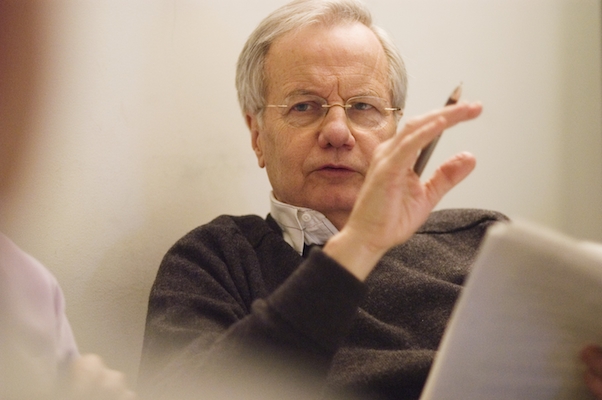Now that it has become acceptable for news sources to take sides, and normal for individuals to take it upon themselves to distribute the news, we need a widely acknowledged set of standards for assessing accuracy in reporting.
But we also need something deeper, the contestation of which seems increasingly implicit in political arguments: we need a way of assessing who really knows what is going on.
The depth of the problem is indicated by the sloppiness of my own formulation. Most of us do not really know what sort of information it is exactly that we are seeking. But most people seem to be looking for some means of making sense of the world.
To make sense of the world we need to be able to discern truth from falsehood and to understand how things fit together. Moreover, we need to not only understand but cultivate our own values. Our values need to not only tell us what to do but they need to tell us something about what we are doing in the world. And since our values and ethical principles will always exist in dynamic tension with our understanding of the world, any journalism that fails to intelligently engage our values will fail in its principle task of helping us to make sense of the world.
To this end, there are a number of criterion we might adopt in seeking out news, and which journalists might abide by in producing it.
Journalists need to rely upon reliable sources. Reliable sources are known for producing data that can be objectively assessed, for not always taking the same side, for challenging allies, and for resting their reputation on the quality of their information. Organizations like the United Nations, the World Bank, Amnesty International, and Human Rights Watch regularly produce this sort of all purpose information, which often goes against their own objectives. Academic studies and census bureaus tend to do the same. Political and business leaders rarely do.
Journalists need to use reason and to weigh arguments. It is often important to hear what political and business leaders have to say because of the power they wield or because their self defenses need to be heard. But journalists who help us make sense of the world need to make the facts abundantly clear when the powerful try to steer our attention away. If they do not then they are wasting our time. Still, much news involves confronting multiple truths that are in competition. Some jobs will be lost if we enact a high minimum wage. So, people will suffer one way or the other. Journalists who help us to make sense of the world will compare and contrast the nature of this suffering.
Journalists need to understand how their own values shape the things about which they write. They need to acknowledge the fact that other people have values that differ from their own. And they need to help their audience sort through the process by which they arrive at their own values. The things we value always exist in intimate conversation with the things we know, so journalists who help us make sense of the world will help us make sense of how new information might affect our values.
Journalists need to be familiar with multiple sides of a story. Since there are rarely only two important sides, this means covering many perspectives. But often one of the two most powerful sides will be based on falsehoods, even outright lies. Journalists who help us make sense of the world will make these falsehoods clear. And often this means covering the multiple viewpoints held by what most people think of as one side. The important point is that they cover multiple perspectives, that they actively scrutinize the information and reasoning that shapes these perspectives, and that the process helps us fit together what we already know of the world.
Journalists need to present a realistic picture of human nature. This means accounting for the wide array of forces that go into shaping any given human action. People are motivated by greed, by pride, by hate, by empathy, by altruism, by social norms, by professional standards and embarrassment, and the list goes on. Any news source that continually implies some group of people possess a single base motive should be suspect. Any news source that treats some class of people, say the Israelis or Muslims, liberals or conservatives, as beyond comprehension will, by definition, fail to help us make sense of the world. Even people performing actions that many would consider evil will often have multiple motives. We simply cannot make sense of the world without understanding why people do what they do.
And perhaps this is the most important point: reliable news sources cover stories that matter most. And while the question of what really matters most will be answered differently by everyone, some things clearly do not matter much at all and are yet treated as pressing concerns: the micro-movements of political polls, specific murders in a given city, etc. Of course, few people will always want to read the deepest story or the one upon which the greatest happiness for the greatest number may pivot. But serious journalism will implicitly make the distinction between serious stories and candy.
Love elephant and want to go steady?
Sign up for our (curated) daily and weekly newsletters!
~
~
Author: Theo Horesh
Editor: Travis May
Photo: PBS









Read 0 comments and reply